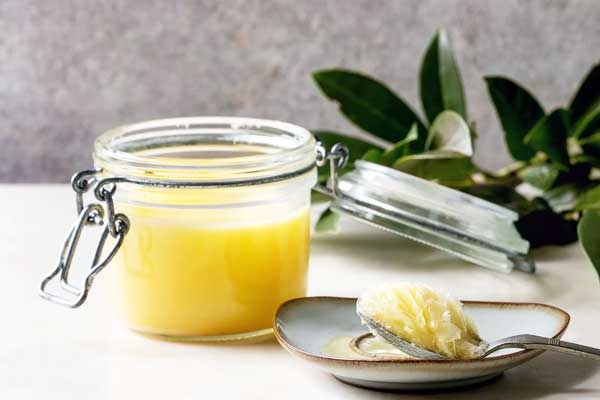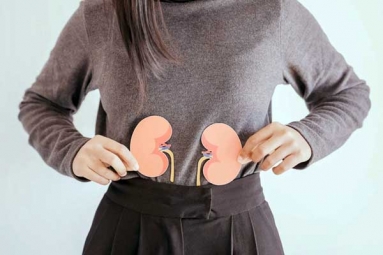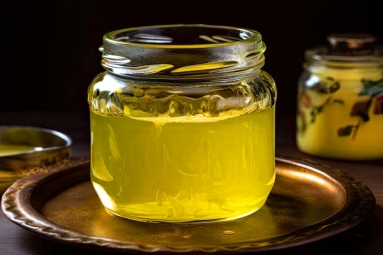
(Image source from: Canva.com)
Desi ghee is an essential ingredient in many Indian homes. It's likely that you agree that a hearty portion of ghee enhances the flavors of rice, chapattis, and dals. Our grandmothers passionately endorsed this rich substance, frequently incorporating it into various homely remedies. This traditional ghee is derived from cow or buffalo milk and is typically prepared at home by churning heated white butter or malai. In Ayurvedic practices, ghee is valued for its rejuvenating properties and is believed to remedy numerous health issues. Recognized as an unrefined fat, ghee is a valuable source of omega-3 fatty acids and vitamin A, both crucial for maintaining good health. Its anti-inflammatory characteristics contribute to overall well-being.
While ghee is highly esteemed as a nutritious component of Indian cuisine, particularly enjoyed in the colder months, its consumption in summer raises some concerns. If you think ghee is exclusively for winter use, you might be mistaken. Here’s the perspective from experts. Ayurvedic practitioner Dr. Dhanvantri Tyagi states, "Ghee is rich in beneficial fats, and our body requires certain fats to function properly. This is why we suggest consuming ghee even in hot weather. Additionally, because our bodies tend to become dehydrated in summer, incorporating ghee can help maintain internal moisture levels."
Debjani Banerjee, Head of Dietetics at PSRI Hospital, adds, "Ghee is packed with nutrition and offers various health benefits. It is an excellent source of butyric acid, which enhances immunity, and it also keeps the body cool. I recommend taking half a spoon of ghee daily on an empty stomach during summer, as it can boost digestive health by promoting gastric acid production."
According to K.T. Acharya's book, A Historical Dictionary of Indian Food, ghee is classified as a 'sweet food' in Ayurvedic terminology. It strengthens the body, aids digestion, and reduces the excessive activity of the three doshas. The ideal ghee for summer consumption is made from cow's milk, known for its mildly sweet flavor, cooling properties, and lightness on the stomach, which helps soothe aggravated vata and pitta doshas. Since pitta dosha tends to become more intense in hot weather, leading to heat-related issues, it’s advisable to add ghee separately after cooking, as its effects can vary significantly in mixed dishes.
Furthermore, applying ghee directly to the skin and hair can alleviate dryness and promote restful sleep. Elevated pitta dosha is often linked to sleep disturbances. Therefore, feel free to incorporate desi ghee into your meals and relish it during the summer just as you do in winter.













